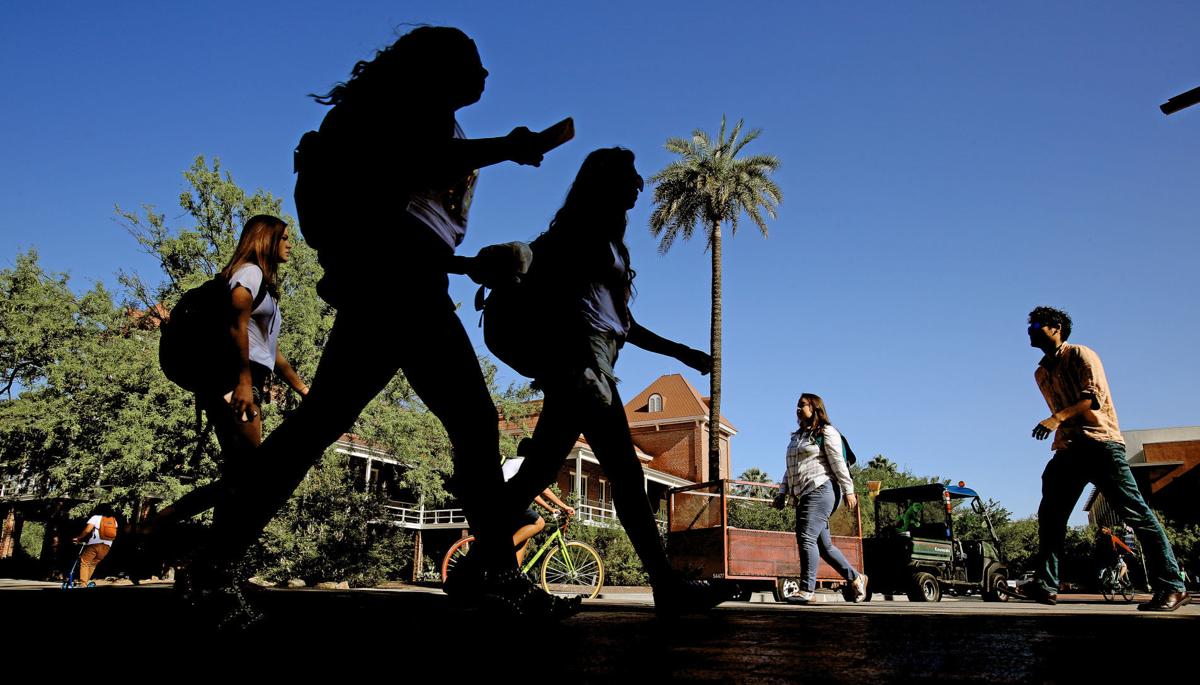PHOENIX — Lawyers for the Board of Regents told a judge Friday that Attorney General Mark Brnovich has no legal right to challenge the tuition the board sets for the state’s three universities.
An attorney for the regents, Joel Nomkin, pointed out the last such challenge came more than a decade ago when former lawmaker John Kromko and others sued after the regents’ decision to raise tuition by close to 30 percent. They argued — as Brnovich does now — that the board violated a constitutional provision that instruction be “as nearly free as possible.”
Nomkin reminded Maricopa County Superior Court Judge Connie Contes that the Attorney General’s Office defended the regents back then by arguing that such questions are beyond the reach of the courts.
The Arizona Supreme Court agreed, tossing out the claim.
“The only thing that’s changed since Kromko is that the attorney general has switched positions and is now suing his client,” Nomkin said.
Assistant Attorney General Beau Roysden does not deny that ruling. In fact, he essentially concedes that there is no right to challenge the specific tuition figures, which now exceed $10,000 a year for Arizona residents.
Roysden said his boss is contesting the policy of how the board arrived at those numbers for tuition. He contends the plain language of the Arizona Constitution requires the board to set tuition based solely on how much it costs to provide instruction.
Roysden said the board instead considers eight factors, ranging from how much other state universities charge, to the availability of student loans and other aid.
“Out of eight factors, none of them are ‘how much does it actually cost to instruct a student’,” he said.
Hanging in the balance is the claim by Brnovich that the regents have “dramatically and unconstitutionally” increased the cost of going to one of the state’s three universities by anywhere from 315 percent to 370 percent since the 2002 school year. On an annualized basis, he said, that computes out to 14.1 percent, “the third-fastest rate of (tuition) growth among all 50 states.”
Brnovich has not disputed that some of that is likely due to lawmakers sharply decreasing the dollars supplied for higher education. Legislative budget analysts have found that since 2008, state aid went from $9,648 per student to $4,098, even before the effects of inflation are considered.
But Brnovich contends that is legally irrelevant. He said the only thing that matters is that the tuition be linked to the actual cost of instruction.
“The purpose of the attorney general’s suit is to stop and recover the illegal payment of public monies, (and) make tuition more affordable for all Arizonans,” Roysden told Contes.
He told the judge the issue extends beyond the cost of tuition for full-time students. He said Arizona residents who want to attend college on a part-time basis are paying more on a per-class basis than those who go full time, and that in-state students in some cases pay the same tuition for online courses as those who do not live here.
The Arizona Board of Regents is also “charging mandatory fees for things like health, athletics and recreation, even if a student just wants to attend class and receive instruction towards his or her degree,” Roysden said.
Nomkin said none of that matters.
He said the Supreme Court, in the Kromko case, essentially said that if people are unhappy with how the board is setting tuition, they have a remedy: Take their case directly to lawmakers, as it was the Legislature that gave the regents the authority in the first place — and who have the power to take it away and set tuition themselves.
The judge gave no indication when she will rule.





